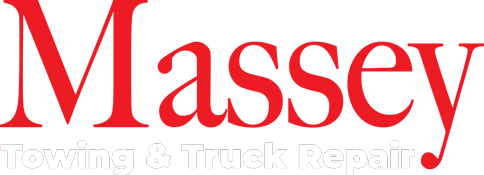Excavators are machines that are often used for lifting large amounts of soil. They are popular on construction sites and demolition sites. But what happens when an excavator needs to be moved from one site to another? They cannot just be driven down a road or dumped onto a truck. These machines can be dangerous if not handled properly and transporting them can be challenging due to their large and awkward size. Most types of excavators weigh over 45 tons and require heavy haul shipping. Trailers are excellent for moving large equipment such as excavators. Before transporting an excavator, the trailer used needs to properly match the equipment. Cities and states have regulations on the weight, height, length, and width of a load. Permits are sometimes also required to perform transportation. In this blog, we’ll discuss different types of trailers used to haul excavators and why it’s a good idea to leave this task up to the professionals.
Can You Tow An Excavator?
When planning to transport large equipment, loading, unloading, and safety measures need to be considered. Excavators vary in size, affecting the type of transportation used. Excavators can be mini and compact, midi and standard, or full and oversized. Trailers are the most commonly used method of transporting excavators. The dimensions of the excavator can be found in the owner’s manual, which can be used to help pick the right trailer. There are many unfortunate stories of heavy equipment falling off trailers and causing damage to structures and people. There are so many details to consider and risks involved in the transporting process that it’s best to not attempt to tow an excavator by yourself. Your equipment is valuable, and hiring professionals ensures the safety of the equipment and of others.
Hauling Excavators
When drivers are transporting large loads, there are many factors that need to be considered. They must pay attention to anything that may interfere with their haul, including signs, tunnels, and street lights. Safely hauling a heavy load requires planning and preparation. Part of the planning is choosing the right trailer. The type of trailer used to haul excavators depends on the height and size of the excavator. A flatbed trailer is usually the best option for transporting excavators. If the height of the machinery is over 8.5 feet, a removable gooseneck trailer or step deck trailer is necessary. Let’s take a closer look at these different types of trailers:
Flatbed Trailers: This type of trailer can hold loads that weigh up to 48,000 pounds. The cargo on these trailers needs to be less than 8.5 feet tall and 8.5 feet wide. Flatbed trailers are typically 48-53 feet long. They are about 4 feet off the ground, so crews use loading docks, forklifts, or cranes to load the excavator on the trailer. Due to their flatness and open sides, flatbed trailers are one of the most common trailers used for heavy hauling. The three main types of flatbed trailers are standard, drop deck, and extended.
Removable Gooseneck Trailer: RGN, or removable gooseneck trailers, haul equipment as tall as 11.5 feet and 8.5 wide. The front of this kind of trailer is removable, which can be used to create a ramp for simplified loading. An escort is needed for this type of transportation. The escort will have a device to measure the clearance and ensure the trailer can safely pass through. RGNs are great options for heavy and awkward loads. This trailer is usually used for oversized excavators.
Step Deck Trailers: Cargo on a step-deck trailer can be 10 feet tall and 8.5 feet wide. They are designed to carry equipment that is too tall to go on a flatbed trailer. The lower and upper deck on these trailers makes it easier to load and unload equipment. A step deck trailer could have a fixed neck, a gooseneck, or a removable gooseneck. A permit and escort may be required to perform this type of transportation. These trailers are best for hauling oversized loads on routes with low bridges and overpasses.
Other Factors To Consider
One of the most important steps of heavy hauling is selecting the best trailer to match the dimensions of the cargo. However, there are other factors that go into ensuring safe transportation. These factors are taken into consideration by hauling companies:
- Experienced driver. Transporting a large and bulky load is not a safe task for an inexperienced driver to perform. For loads over 26,000 pounds, the driver must have a CDL license. Drivers that safely transport excavators are trained and have planned for the safest route to take.
- Distance. While some hauling jobs are short transport, other jobs may spread over long distances. Different states have varying regulations that need to be researched before crossing state lines. These regulations can affect rules regarding load size and required escorts.
- Tie-Downs. Regulations require that equipment weighing over 10,000 pounds have a minimum of four tie-downs. For cargo weighing more than 30,000 pounds, half of the total weight must be secured down. Binders, chains, and straps have ratings and are required to meet the minimum standard of the working load limit.
Massey Towing & Truck Service
Transporting such a heavy piece of machinery is not a simple task. Excavators are expensive, delicate, and dangerous. It is best to leave this task up to the professionals to avoid damage and ensure safety. Our experts at Massey Towing & Truck Service can assist you through this transportation process. We guarantee safe and timely transportation. Find us at any of our three locations in Texas. We have sites in Dallas, Waxahachie, and Ennis. Contact us for a quote today and let’s get your heavy haul process started!

